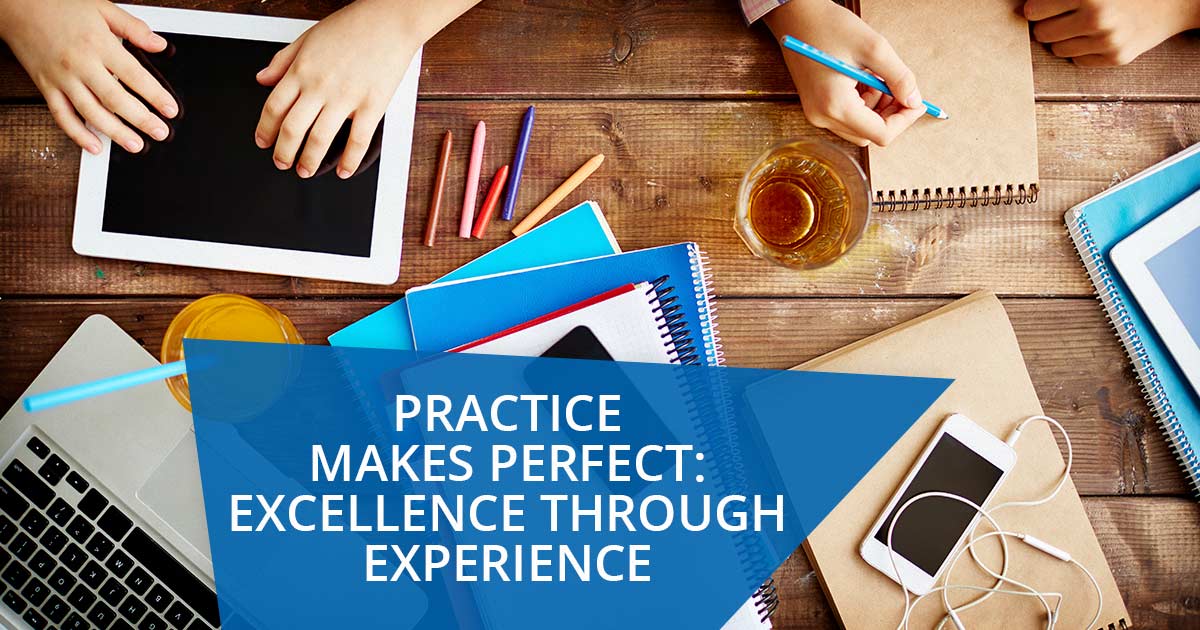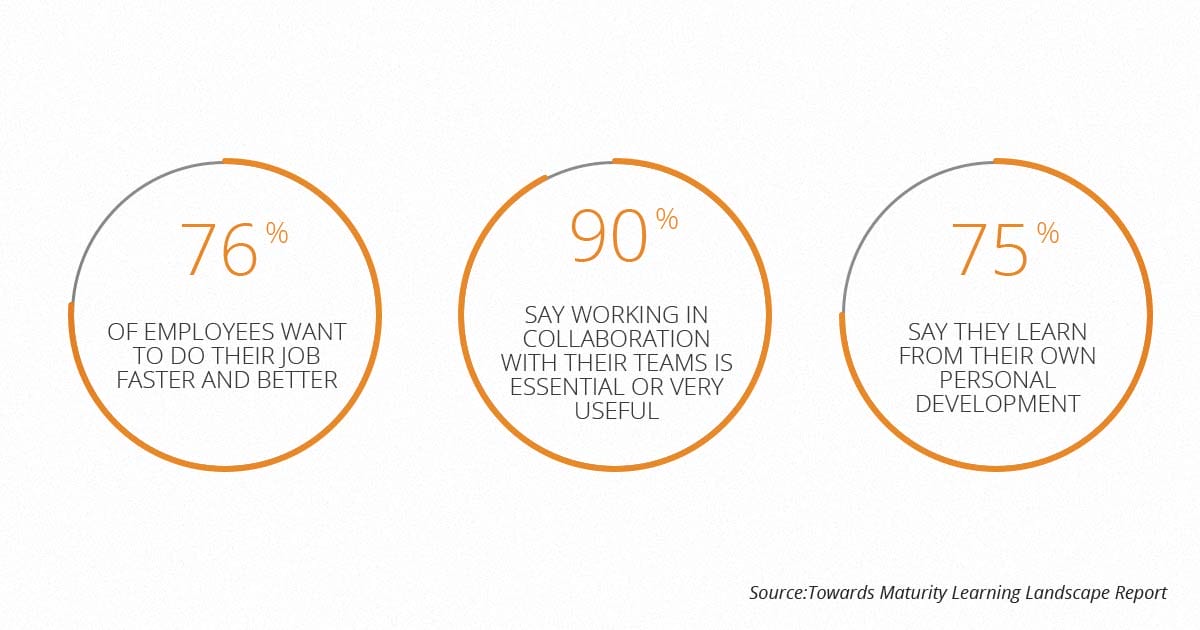
Three specific, experience-based tasks that make your 70:20:10 learning programs effective
“By seeking and blundering we learn,” is a succinct phrase you might have seen on a t-shirt before. It’s a Johann Wolfgang von Goethe quote from conversations with the German statesman and writer before his death at 82. It endorses the value of a trial-and-error, experiential approach to all life’s pursuits (including 70:20:10-driven learning.)
The quote is geared towards those who wander and experience life in all its forms, but is as relevant to the active worker, at any level of his or her job. And it’s also central to the 70:20:10 framework’s idea that experience is the dominant way in which learners actually learn in their roles, something reiterated in 70+20+10=100: The Evidence Behind the Numbers. In this report a full 75% of workers surveyed said they learn for their own personal development, with 90% saying working in collaboration with team members was either essential or very useful and 87% calling general conversation and meetings essential or useful.
We often cover broad ways in which the 70:20:10 framework is useful, and these ideas will be covered in greater depth in the 70:20:10 Institute’s own primer on the methodology. Let’s look at three specific ways in which experience is directly related to learning effectiveness.

1. Reflecting while working
As learners, we’ve taken in all of the procedures, processes, and best practices in our classroom-based, instructor-led training, and now we’re in the field, at our desks, and on the job. When we execute our tasks, learn from our peers, and face challenges in actual, real-world manifestations of the examples described to us in formal learning environments, we’re given a lot of time to reflect on what we observe, what we’ve done, how we could have acted in hindsight, and what we’ll do next time.
Now, when we learn experientially on the job, by nature we reflect in order to digest our experiences and allow them to inform how we ought to proceed in the future. It’s really not unlike life, where reflection enables us to comprehend and calculate the meaning of a situation, after it occurs. And this very similar reflecting while working is a big chunk of the “experiential” component of the 70:20:10 methodology.
2. Watching the experts
Once again, on the field, outside of the classroom, we have the opportunity to see actual seasoned experts doing what they do. We get to watch them respond to situations based on their years of experience dealing with similar situations, time and time again.
This kind of learning can’t be handed to a learner in an instruction manual, nor contrived in the confines of a classroom. It’s the kind of thing that can’t be premeditated, but will occur. When we observe experts achieve positive outcomes in repeated, real-world scenarios, we’ll absorb their actions and methods keenly, innately aware their approaches will in turn enable us to achieve similarly successful results.
3. Writing blogs
Did I just suggest writing blogs can help learners learn? I did. Blogging, writing articles, and even authoring books (for learners at that stage of knowledge exchange,) is like an extended form of the two examples mentioned above. We reflect naturally, and blogging simply extends the process of that reflection to the page, for the benefit of both author and reader. And this reflection is informed by on-the-job observation, which can generate genuinely interesting and relatable stories.
So the exercise of writing and sharing benefits the writer, as he or she achieves clarity of thought and a better sense of meaning from the experiences they have observed and been a part of, and it also benefits the reader as well, as they take away the author’s accrued insight and add to their own arsenal of tools as they enter or continue their own learning journey.
We’ve released an exciting white paper from the 70:20:10 Institute itself on the entire framework of this increasingly proven methodology for learning. Download it now for immediate results.
